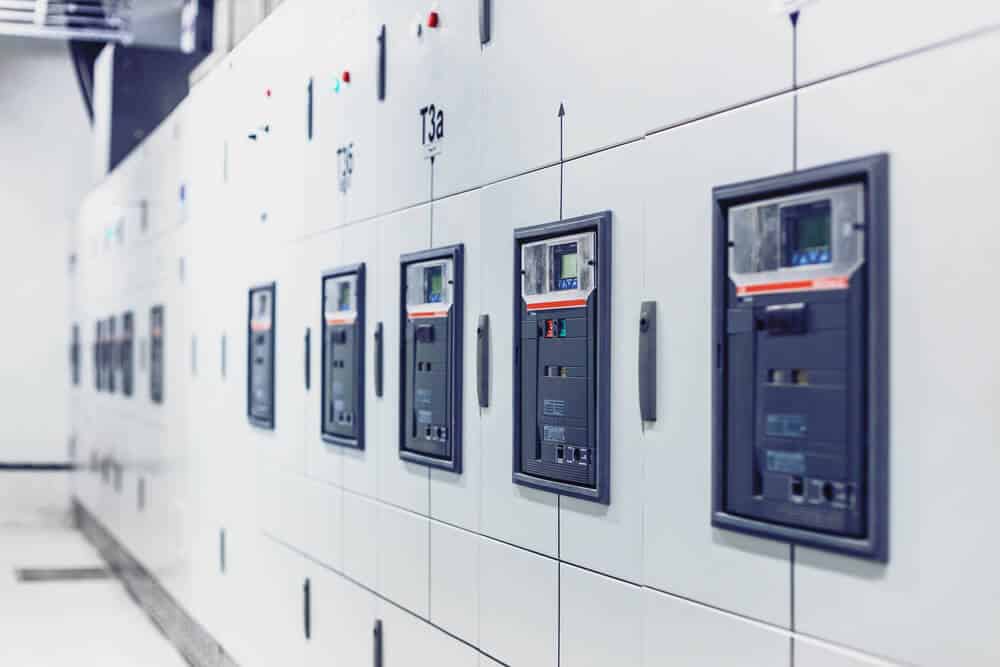
As technological improvements allow battery manufacturers to create stronger, longer-lasting batteries, more people turn to this easily-renewable energy source. Whether using these batteries to develop roadside EV chargers or to power an electric vehicle, the uses of high-voltage batteries in electrification continue to increase. Learn more about the technological developments in high-voltage battery production and the various uses for these powerhouses, especially regarding electric vehicles (EVs).
What Is Considered High Voltage?
High voltage refers to products relying on a regular power source that supplies more than 60 volts of power at a time. Most electric vehicles use at least 400 volts, with larger vehicles requiring 800 volts. With EV manufacturers aiming to create products to are more energy-efficient, higher voltages enable them to create batteries that use much fewer materials, allowing them to pay less for more energy.
High-Voltage Automotive Electrification Systems
Most EV voltages correspond to the size of the vehicle, with 400 volts commonly used for passenger vehicles and 600 volts for buses and freight trucks. Some smaller vehicles, such as ATVs and UTVs, can run off as few as 12 volts. Today, many EV manufacturers have switched to installing high-voltage car batteries, usually with an 800-volt battery.
These high-power vehicles offer many benefits, including the following.
Reduced Battery Size
800-volt EV batteries take up much less space than their predecessors. With better energy density, the materials used to create 800-volt batteries consist of smaller, finer components that you can pack together more tightly. Smaller batteries allow manufacturers to push other vehicle parts together, making it easier to craft roomier trunks and cabins than older EV versions.
Quicker Charging Time
A high-voltage car battery absorbs electrical energy much faster than lower-voltage versions. For example, you can charge an 800-volt car battery in about half the time as a 400 volt, making high-voltage systems superior to lower-voltage ones when it comes to charging. Drivers wanting to split their charging time in half can upgrade to an electric vehicle with an 800-volt battery and reap the benefits.
Increased Driving Range
Many EV owners must be more careful about how long they can drive before recharging. While the most common EVs on the road today use a 400-volt battery and can travel up to 250 miles, 800-volt batteries can last up to 400 miles before recharging. This makes road trips easier and more affordable than gas-powered vehicles, where a full gas tank may only get you as far as 200 to 400 miles.
HV Batteries’ Crucial Role in Electric Vehicles
Using high-voltage batteries in electrification has vastly improved the consumer experience, making it easier for new drivers to switch to EVs over gas-powered vehicles. An 800-volt car battery already offers drivers the features of a faster charging time, smaller battery, and longer driving ranges while still providing many of the standard EV advantages, such as the following.
Easy Refueling
As the popularity and accessibility of electric vehicles have grown, charging stations have begun to pop up at gas stations, restaurants, and other easy-access places. EV owners can even install chargers in their garages or outside their homes, though these installations can range from $300 to over $1,000. While this may seem unnecessary, the ease of charging your vehicle at your home can make EV ownership an even more attractive option.
Less Environmental Impact
Since high-voltage batteries use electricity, EV owners don’t have to worry about increasing their carbon footprint or using precious fossil fuels. Some EV owners opt to install chargers powered by electricity generated with solar power, an option they can utilize for their homes. Besides using less energy, homeowners can enjoy lower energy bills when they install solar panels.
A True Financial Investment
If you consider an EV as an investment, you’ll enjoy the long-term savings of an EV. You’ll spend less on gas (none), contribute less carbon to the environment, and drive a vehicle that can travel for hundreds of miles before needing maintenance or repairs. Electric cars can run higher than your typical vehicle budget, but with an 800-volt battery, the other costs of vehicle ownership, such as fueling, repairs, and maintenance, lower dramatically.
Electric Cars: Power Up, Stay Safe
Another benefit of new, 800-volt electric cars consists of their safety. While many drivers fear that using an electric vehicle puts them at risk of electric shock, the manufacturers of these cars make sure to include safety mechanisms that keep this issue from occurring. If an electric car detects a malfunction with the battery, the system interrupts the electrical flow for safe and effective troubleshooting and repairs.
An additional benefit of EVs is that you will have no dangerous, combustible gas onboard, making electric vehicles an even safer option. Any electrical components in the vehicle’s battery compartment have a protective coating that detracts from the possibility of electrocution and stops the different parts from rubbing up against each other. The lithium batteries used inside EVs have no danger of spontaneously combusting, allowing drivers to feel safer while on the road.
Powering the Future With 800v HV Batteries
While high voltage technology continues to improve, the most recent 800v batteries offer EV drivers the most up-to-date version of a safe, long-lasting electric battery. Besides taking up less space and using fewer resources to create, these batteries offer drivers a safer alternative to gas-laden driving. Drivers can also expect their battery-powered vehicles to drive for longer distances and charge faster than previous iterations.
800v batteries can power more than the typical passenger vehicle, making these batteries a useful invention for multiple industries. From pizza delivery drivers to long-haul truckers, 800-volt batteries change how drivers experience their vehicles, lower the overall release of carbon dioxide into the air, and provide easier and safer refueling with the help of a battery management system.
Comparing 400V vs. 800V Battery Systems
While 400V systems have been standard in EVs, 800V technology is gaining traction due to its ability to reduce charging time by nearly 50% and improve overall efficiency. Automakers like Porsche, Hyundai, and Lucid Motors are already implementing 800V architecture to optimize performance.
Advancements In Battery Technology
New solid-state batteries and improved cooling mechanisms are enhancing energy density and safety. These advancements allow for lighter, more compact battery packs, enabling better vehicle design and increased driving range.
Market Growth & Industry Adoption
Experts project that the global EV market will exceed $900 billion by 2030, with high-voltage battery systems playing a pivotal role. Governments worldwide are incentivizing the adoption of 800V platforms to accelerate EV infrastructure.
Safety Considerations In High-Voltage Systems
As voltage increases, thermal management, and circuit protection become more critical. Manufacturers are incorporating advanced insulation materials and monitoring sensors to prevent overheating and electrical failures.
The Bottom Line
Exploring the many benefits of high-voltage batteries in electrification shows us the utility and advantages of using an electric vehicle. As new technology emerges that may one day take vehicle batteries higher than 800 volts, we can expect faster charging times, longer driving ranges, and many more drivers making the switch. These batteries can one day power larger and heavier machinery, making construction sites less noxious while turning factories into their form of green machines.
At Dynamic Manufacturing, we lead a team of highly educated and experienced engineers and machinists in discovering new ways to utilize electric battery technology. From electric drive trains to extending battery life, our experiments and methodologies allow us to offer businesses and organizations more access to new technologies as they appear.
Electric vehicles are the way of the future, and high-voltage batteries can help make them more efficient. Learn more about the innovative engineering and machining of high-voltage batteries in electrification by contacting Dynamic Manufacturing in Hillside, IL, at (708) 343-8753.



